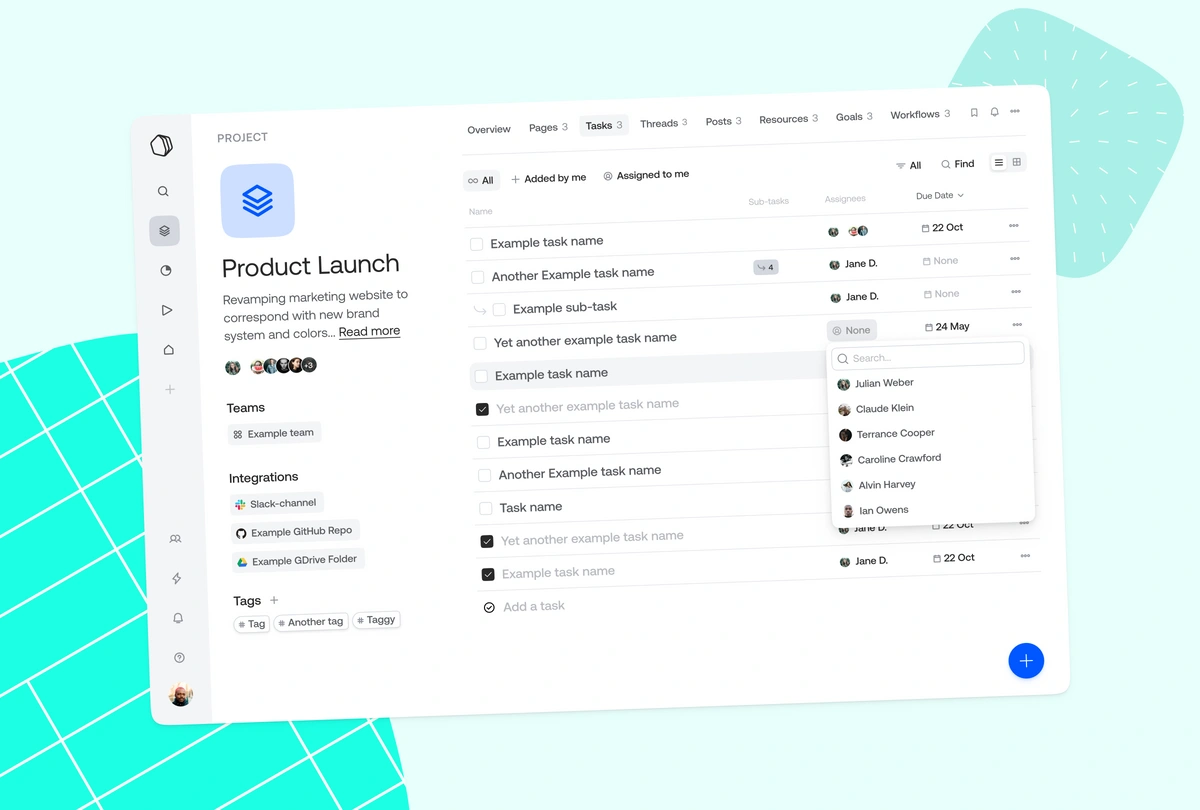
What is knowledge management and why does it matter?
Knowledge management has never been as important as it is today.
More and more of us are working in different places, on different schedules, and in different time zones from our colleagues. As a result, when we have to ask others for the information we need to get our work done, it’s causing delays and frustration for all involved.
In fact, nearly half of all knowledge workers (49%) worry that important information is being lost at work. And 48% report making mistakes because they can’t keep track of the information they need across different tools and apps.
It’s a big problem. But there is a solution.
The right knowledge management system can put the information we need at our fingertips. It eliminates time spent chasing data or reinventing the wheel when there are already tried and tested solutions. And it makes collaboration fast, effective and rewarding. No wonder it is quickly becoming a critical ingredient in today’s most successful companies.
So, what exactly is knowledge management, and how does it work?
The definition of knowledge management
Knowledge management is the process of identifying, collecting, storing, organizing and disseminating information.
It can be as simple as writing a “to do” list and putting people’s initials against it. But the more people who have to access, use and grow knowledge, the more sophisticated a knowledge management system needs to become.
So what do we really mean by “knowledge”?
Different types of knowledge
There are three basic kinds of knowledge:
- Explicit knowledge is that which is already codified. In other words, someone, somewhere has recognized its value, brought it together, and recorded it. That means other people can access and use it. Examples could include staff directories, contact databases or desk notes.
- Implicit knowledge is knowledge that isn’t codified in this way, but which could be without too much difficulty. It’s often the fine detail of exactly how to do something — what could be referred to as “know-how”. An example might be knowing how to get around a glitch in an app.
- Tacit knowledge is another form of uncodified knowledge. But unlike implicit knowledge, it’s difficult to articulate and hence to record. And that makes it particularly challenging to pass on to other people. Examples include leadership skills and knowing how to make a sale.
All these different types of knowledge can be equally important. And all three often work together.
A staff directory (explicit knowledge) is no good unless we have the implicit knowledge of where to find it on our company’s system. And when we know who to contact, we need tacit knowledge of effective communication to make an appropriate introduction.
Managing knowledge in a changing workplace
In the past, lots of knowledge was passed on through person-to-person interaction. But that relied on people being based in the same place.
But this model has come under increasing strain. Vast swathes of the global workforce are now working remotely. And in many organizations, colleagues aren’t just in different locations, but different time zones.
These changes were already underway, but the pandemic has accelerated them. Workers proved they could still deliver organizational objectives from home, and those juggling family and other commitments wanted their newfound flexibility to continue.
However, companies also realized that the old ways of collaborating and sharing information just didn’t work anymore. In response, companies have invested in a slew of new tools to plug the gap. The unwanted result? The environment in which people are working has become ever more complex.
Drowning in a sea of noise
Information is divided across different apps and platforms. No-one knows where to find what they need. And work is constantly interrupted with notifications as people try to paper over the cracks.
A recent study by Qatalog and GitLab found that the average knowledge worker received notifications from six different apps every day.
All that frenetic and unproductive activity comes from fear — fear of losing valuable knowledge. And another piece of research from Qatalog and Cornell University found that:
- 59 minutes a day are wasted trying to recover lost information
- 49% of people worry that important information is being lost at work
- 48% of people report making mistakes because they can’t keep track of information held in different online tools and apps
And despite the effort spent updating colleagues across multiple channels, essential knowledge often remains with a handful of key individuals. That’s a big risk for any organization.
A better way
It doesn’t have to be this way.
An effective knowledge management strategy puts information in easy reach of the people who need it. It means minimal time spent on chasing and coordination. And it liberates teams to carry out the real work that will achieve their goals.
It demonstrates trust and confidence in employees too, strengthening morale. And standard processes like onboarding and expense reporting become smooth and fast with all the relevant information in one place.
Related reading: The hottest trend in corporate culture is documentation
The key to change
So how do we get beyond the pings and into a world of simple, streamlined and effective knowledge management?
There are two key elements to a successful knowledge management strategy: culture and tools. We’ll look at both of these in more depth in future blog posts.
To get started, though, you need people who understand its importance and want to make it work. And that means they’re willing to invest time and resources to make the change. Then you can start to think about the right tools to help.
Qatalog makes knowledge management a dream. It documents knowledge naturally, because it’s where work is coordinated, decisions are made, and processes are created—so there’s no more copying and reformatting information from one tool to another.
It includes features such as:
- Search to search across your entire tool stack;
- Projects to make collaboration easy and centralize key documents;
- Goals that align to individuals and teams, and track status and progress;
- Workflows to document and automate routine processes like onboarding or requesting equipment;
- Threads to make decisions transparently and to set them in context.
All of this combines to enable an intuitive self-serve way of working. People can find what they need without slowing down and asking others, and with complete confidence that what they find is up-to-date and accurate. Qatalog also works seamlessly with all your other tools, meaning you can find anything—no matter where it’s stored.
Book a call with our Customer Team to learn more about how Qatalog can make knowledge management easy for your team.




